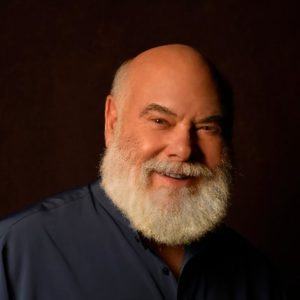Dr. Andrew Weil is an author and internationally recognized expert on integrative medicine, a holistic approach to health that addresses mind, body, and spiritual wellness. He is also the Founder and Director of the Andrew Weil Center for Integrative Medicine at the University of Arizona, where he teaches in the colleges of Medicine and Public Health.
Dr. Weil earned his Bachelors in Biology and Doctor of Medicine from Harvard in 1964 and 1968, respectively. He was an undergraduate while the Harvard Psilocybin Project experiments by Timothy Leary and Richard Alpert — then professors in the Psychology Department — were underway. In May 1963, Dr. Weil and Joseph Russin penned a critique of Leary and Alpert (later known as Baba Ram Dass) and their scientific integrity in the Harvard Crimson.1 Some have suggested that the editorial contributed to the professors’ dismissal from the university.
While in medical school, Dr. Weil published some of the earliest clinical research of cannabis’ effects on humans.2 He completed an internship at Mt. Zion Hospital in San Francisco, then spent a year working at the National Institute of Mental Health. During a fellowship with the Institute of Current World Affairs from 1971 to 1975 traveled around North America, South America, and Africa studying drug use, medicinal plants, and alternative medicine.
Dr. Weil personally experienced psilocybin mushrooms in Mexico in 1972. He published his first book, The Natural Mind, that year. The book’s exploration of substance-induced altered states of consciousness challenged the era’s dominant discourse bred by the war on drugs. Between 1971 and 1978, Dr. Weil conducted research on medicinal and psychoactive plants on behalf of the Harvard Botanical Museum. In 1977, he authored a scientific article on the use of hallucinogenic mushrooms in the Pacific Northwest of the United States.3 His study of mushrooms inspired the name of a psilocybin species discovered in 1995, Psilocybe weilii.4
In 1994, Dr. Weil and Wade Davis’ discovered the presence of hallucinogen 5-MeO-DMT in the secretions of Bufo alvarius, the Sonoran desert toad.5 That same year, Dr. Weil founded the Andrew Weil Center for Integrative Medicine in Tucson, Arizona. The Center’s goal is to transform the healthcare industry by preparing physicians for integrative medicine practice. He launched the Weil Foundation in 2004, which funds the Center as well as other integrative medicine programs and nonprofit healthcare organizations.
Dr. Weil is outspoken about the healing potential of psychedelics through the mind-body connection. In a 2006 interview with author David Jay Brown, Dr. Weil said personal experiences with psychedelics made him “very much aware…of the profound influence of consciousness on health,” and that they can be used as “teaching tools to show people that you can change chronic patterns of illness.” He told Zack Leary in a 2019 interview on the MAPS podcast that “…experiences on psychedelics can… give you glimpses of the possibility of experiencing what’s going on in your body in different ways [which] can then motivate you to find other ways of maintaining those experiences.” He also brought attention to the lack of clinical providers to meet the rising demand for psychedelic-assisted psychotherapy. Dr. Weil’s work to expand integrative medicine programs through Weil Center and Foundation help address this issue.
Dr. Weil presented on “The Future of Psychedelic and Medical Marijuana Research” at the 2010 MAPS conference. Other, more recent speaking engagements include a December 2018 interview on the Joe Rogan Experience podcast and a July 2020 interview with Ronan Levy on the Field Tripping podcast. In October 2020, Dr. Weil joined the advisory board for Field Trip Health, Levy’s company that is building a network of psychedelic-assisted therapy centers.
